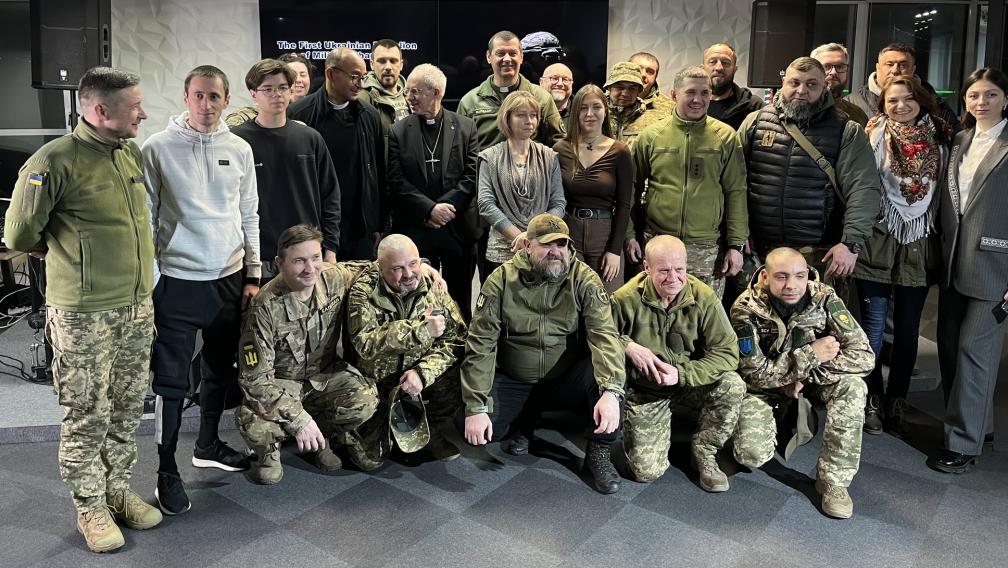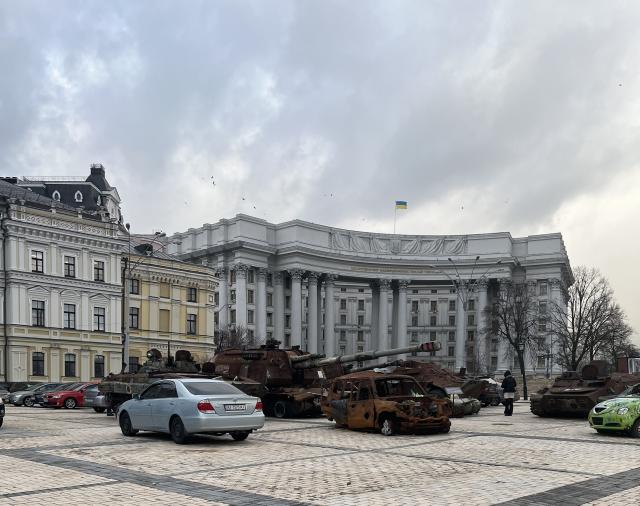Father Phil: Supporting Ukraine Is a Moral Imperative

This article originally appeared in The Hill.
This month brought encouraging news that House Speaker Mike Johnson (R-La.) is prepared to act on his plan to continue the critical flow of American aid to war-torn Ukraine. But that process could still take weeks, during which time Ukrainians from all walks of life will face difficult and avoidable challenges. It is a moral imperative that our leaders act without delay.
Congress’s aid package has been stalled in the House for months, but now that logjam may be breaking. What is important now is to ensure the maximum amount of funding reaches Ukraine as quickly as possible. Countless lives hang in the balance.
I am a minister, not a politician. But I write here to ask that those lawmakers who see themselves as people of faith consider the Gospel imperative to support those in need not only with words, but “with actions and in truth.”
With Easter Sunday just days behind us, we must now ask what Christ’s teachings demand of elected leaders who often tout their Christianity in public while failing to heed the lessons of the Gospels.
In early February, I joined Archbishop of Canterbury Justin Welby on a visit to Ukraine, where we saw the appalling human cost of Russia’s invasion — families with their lives uprooted, shattered by death and destruction. Almost 4 million Ukrainians are refugees in their own country, pushed from their homes by the war. Another 6.5 million have fled the country altogether. What I saw convinced me of America’s moral responsibility to protect these men and women from the illegal and immoral Russian military aggression. But for too many lawmakers in Congress, apparently the picture is not so clear.
I serve a church here in New York City that knows something of what it means to fight for liberation. Visitors to historic Trinity Church, founded in 1697, walk among the bones of our country’s revolutionary heroes — Alexander Hamilton and Revolutionary War spy Hercules Mulligan both rest here. George Washington prayed in our St. Paul’s Chapel after he was inaugurated in 1789. In 1959, Black and white Episcopalians came together to form the Episcopal Society for Cultural and Racial Unity, a pioneering civil rights organization.
In the past year, Trinity Church has provided meals and other support to those who have come to New York fleeing oppression in their own countries, among them asylum seekers from countries such as Venezuela, Angola and Ukraine.
We Christians are called to love indiscriminately — not to love ideas or platforms, arguments or positions, but real people. We are called to witness the suffering of others, to join in that suffering, and to do what we can to help. That’s what I hoped to accomplish when I visited Ukraine. At a meeting with a senior government official, I asked her what message I could take back to the U.S. A strong woman, an officer in the Ukrainian Army, she was emotional as she said “We are looking to you for leadership. Will you not lead?”
We Christians are called to love indiscriminately — not to love ideas or platforms, arguments or positions, but real people.
Will we? Johnson speaks frequently about how his Christian faith informs his sense of public service and leadership. It seems reasonable that Johnson and other vocally Christian lawmakers would celebrate the opportunity to put their faith and Christ’s word into action in such a consequential way — especially when the bloody cost of inaction will be catastrophic.
Now is the moment of decision. Robust American support for Ukraine remains the best way to guarantee a just end to this conflict. We have a moral duty to pick up the mantle of leadership and a moral responsibility to assist the people of Ukraine in their desperate struggle against Vladimir Putin’s Russia.
In the wake of this Easter season, we remember that this time is defined by Jesus’ courage in laying down his own life for his friends — and for all of us. In Ukraine, we are being asked for so much less — merely to witness what is happening and do what we can to prevent an illegal and abhorrent slaughter.






